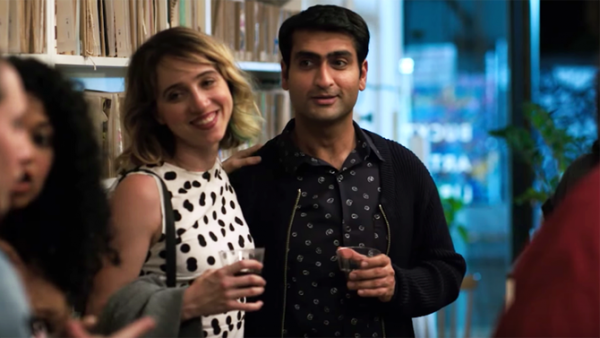When I was 13, my mother told me that she would kick me out of the house if I got a tattoo, or if I married non-Jewish. Her first fear never came to fruition, and her second was something I supported—if not ideologically—at least pragmatically. I grew up in a predominantly Jewish neighbourhood in Toronto, attended Jewish Day School, and during the summer months, went to a Jewish sleepover camp. My mother had no reason to fear me dating non-Jewish boys, for the simple reason that I did not know any.
While not all students come from backgrounds as culturally homogeneous as I do, university is a time when one gets to leave the confines of one’s upbringing and meet people with entirely different experiences. And while the people I’ve met at McGill may not be as in tune with the particularities of the Toronto Jewish experience, I often find we relate in ways that are much deeper. This is the first time I have truly encountered the issue of dating outside of my culture.
There’s certainly nothing wrong with individuals of different backgrounds’ decisions to intermarry, and it is a choice on which I am presently undecided. However, I am discouraged by the mainstream perception that the decision to marry within one’s culture is outdated and narrow-minded.
The reaction of most of my Caucasian, non-religious peers is that dating based on faith or culture is “dumb” and people should be free to love whomever they choose. It’s a fair stance, to some degree. Many of these expectations are suffocating—in some ultra-orthodox Jewish communities, there exists a nefarious tradition to hold a funeral for a child who has married outside of their faith. However, such broad-sweeping statements also oversimplify the innate value of culture and religion, and frame these traditions as forced upon modern generations. If I resent the hours I spent bored at synagogue as a kid, then I am equally as grateful for the traditions and sense of community that grew out of that sanctuary.
The modern-day narrative is that love conquers all. Especially in pop culture, where intercultural relationships increasingly exist as a subgenre of the star-crossed lover trope. For example, in their summer film The Big Sick, Kumail Nanjiani and Emily V. Gordon tell their love story—and the pressures they felt from Nanjiani’s Pakistani parents—who wanted to arrange his marriage. In its first season, Aziz Ansari’s Master of None follows protagonist Dev, reluctant to tell his parents about his white girlfriend. Even going back to Woody Allen films like Annie Hall, Allen is hypnotized by the differences between him and his ultra-WASP-y girlfriend.
Each of these stories are easy to root for, but each also buys into Hollywood’s portrayal of love as the only thing that can complete a person. Moreover, they pose love and culture as antithetical: We see Nanjiani, Ansari, and Allen discard their religious practices as they immerse themselves in their new relationships. Watching Nanjiani go on countless dates set up by his parents, I couldn’t help but think he could probably be equally as happy with each of these Pakistani women as he would be with his blonde wife.
Of course, my experience navigating romantic relationships is very skewed—as all experiences are—in that my Judaism is non-visible and I am straight. Restraints around dating become much more challenging when considering the implications of race and gender. Moreover, my mother’s threats are mostly empty, and while it might not always feel like it, I am privileged to have a tremendous amount of autonomy in this decision.
Love is important, but so is culture, and the two need not always be portrayed as a point of conflict. Mainstream media often depicts religion and nationality as dividing forces, when in fact, these cultural values bring a strong sense of unison and community. If anything, I’d love to see a blockbuster rom-com about a non-white or non-secular couple that falls in love, and the challenges they inevitably face regardless of a huge cultural divide.








